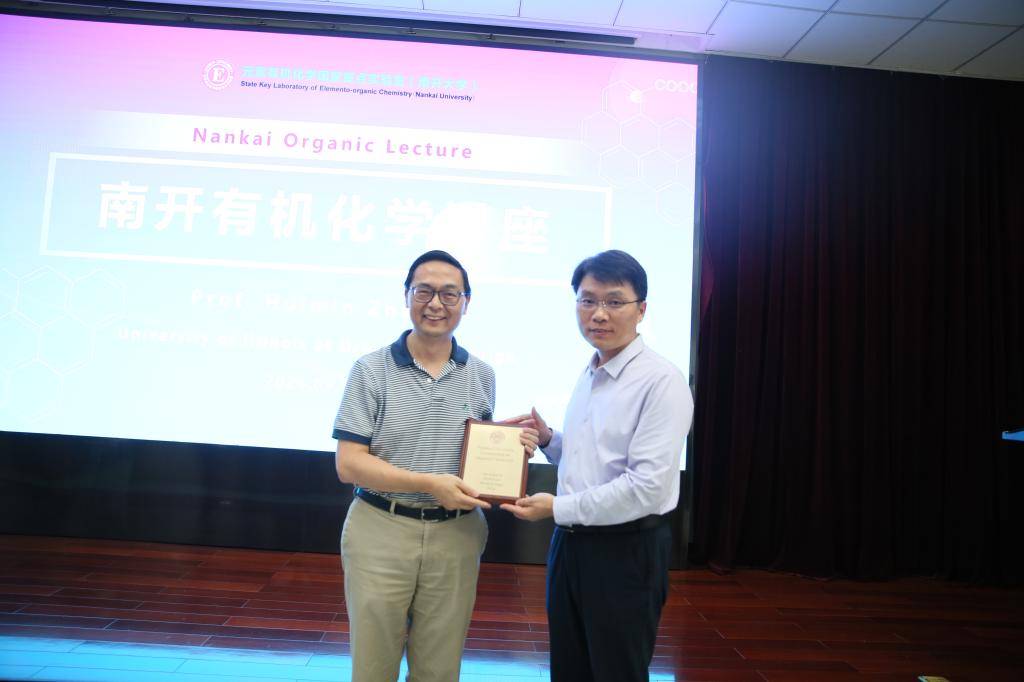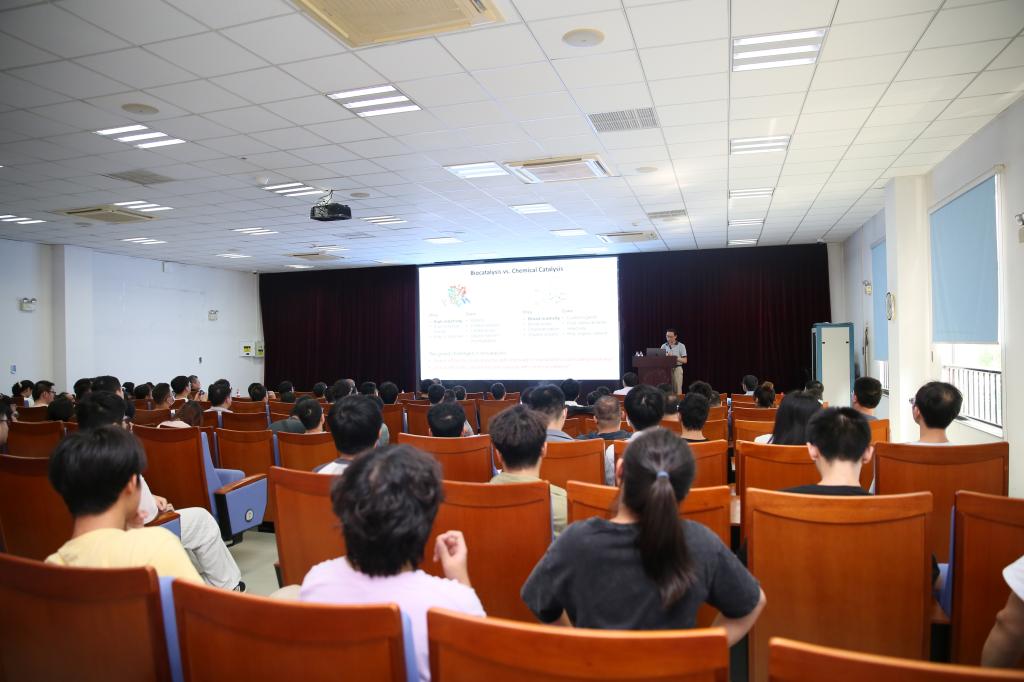2024年9月19日,美国伊利诺伊大学厄巴纳-尚佩恩分校Huimin Zhao(赵惠民)教授应元素有机化学国家重点实验室邀请做客南开有机化学讲座,与重点实验室师生交流互动,并在石先楼学术报告厅做了题为“Expanding the Boundary of Biocatalysis: From Directed Evolution to AI-enabled Autonomous Experimentation”的学术报告。会议由重点实验室彭谦教授主持,重点实验室及化学学院师生近150人参加了此次学术交流。

在报告开始前,南开大学副校长朱守非代表重点实验室向Huimin Zhao教授颁发了“南开大学有机化学讲座”的证书牌。报告中,赵教授首先通过探索酶催化和非酶催化之间的协同作用,讨论了新的方法学用于精细化学品合成,介绍了将光催化与生物催化相结合用于非生物转化的新策略。此外,还展示了研发的人工智能和机器学习新工具用于合成规划,以及实验室自动化工具用于酶体系的发现,这些策略和工具都应大大加快生物催化剂的开发,并用于与人类健康、能源和可持续发展的相关领域。报告之后,赵教授与在场师生进行了精彩的互动,并感谢南开培养学生在组内的重要贡献。赵教授的报告不仅展示了酶催化、机器学习和自动化设备的交叉前沿领域,而且让大家感受到了当代科技新工具的硬实力,在场的每一位师生都获益匪浅。

Prof. Huimin Zhao is the Steven L. Miller Chair of chemical and biomolecular engineering at the University of Illinois at Urbana-Champaign (UIUC), director of NSF AI Institute for Molecule Synthesis (moleculemaker.org), director of NSF iBioFoundry, and Editor in Chief of ACS Synthetic Biology. He received his B.S. degree in Biology from the University of Science and Technology of China in 1992 and his Ph.D. degree in Chemistry from the California Institute of Technology in 1998 under the guidance of Nobel Laureate Dr. Frances Arnold. Prior to joining UIUC in 2000, he was a project leader at the Industrial Biotechnology Laboratory of the Dow Chemical Company. He was promoted to full professor in 2008. Prof. Zhao has authored and co-authored over 450 research articles and over 30 issued and pending patent applications. In addition, he has given over 500 plenary, keynote, or invited lectures. Thirty-seven (37) of his former graduate students and postdocs became professors or principal investigators around the world. Prof. Zhao received numerous research and teaching awards and honors such as SIMB Charles D. Scott Award, AIChE Daniel I.C. Wang Award, AIChE FP&B Division Award, ECI Enzyme Engineering Award, ACS Marvin Johnson Award, and SIMB Charles Thom Award. His primary research interests are in the development and applications of synthetic biology, machine learning, and laboratory automation tools to address society’s most daunting challenges in health, energy, and sustainability.